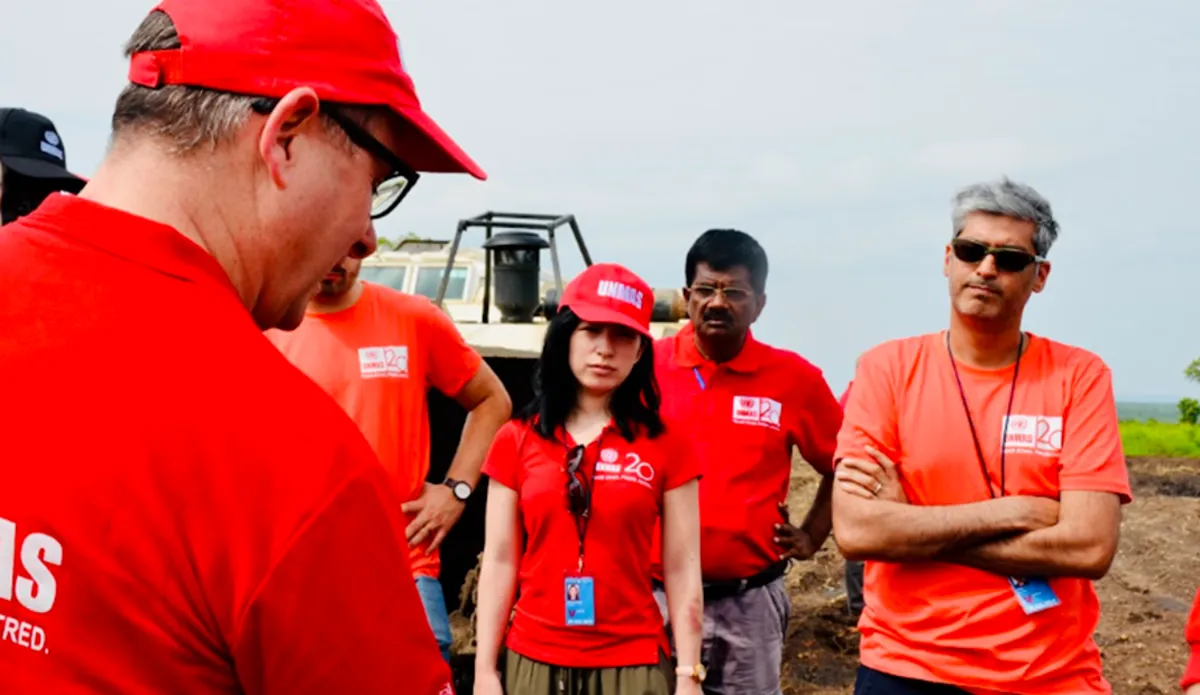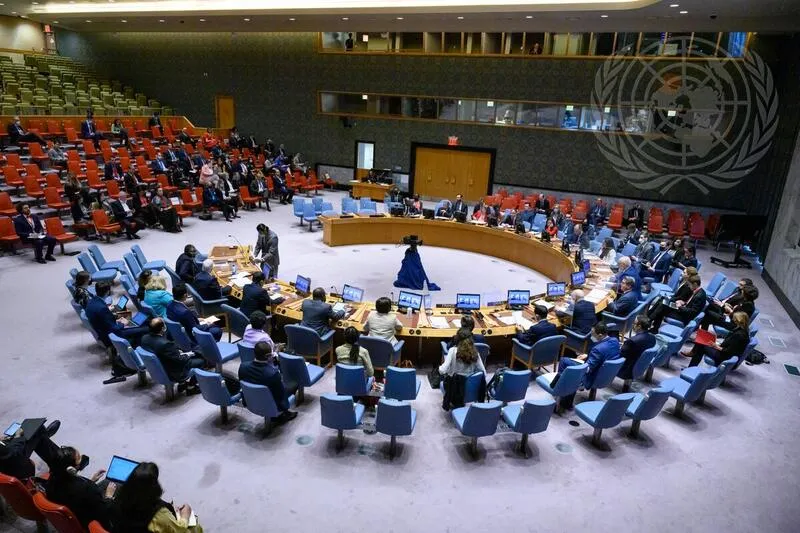The Gaza conflict has once again drawn global attention due to the deepening humanitarian crisis. With increasing civilian casualties, destroyed infrastructure, and worsening shortages of food, water, and medical aid, the United Nations has stepped up its calls for urgent action. At the center of these appeals is the UN Secretary-General, who has made repeated pleas to the international community to prevent further escalation and to prioritize the protection of innocent lives.
The 5 urgent appeals from the UN Chief on the Gaza conflict highlight the immediate steps needed to address the situation. These appeals focus on humanitarian aid, civilian protection, diplomatic engagement, accountability, and a long-term vision for peace. Each of these points reflects both the urgency of the current crisis and the necessity of collective global responsibility.
This article will explore these five appeals in detail, breaking them down into key features, followed by insights into their significance.
1. Urgent Humanitarian Access in Gaza
Key Features:
- Immediate delivery of food, clean water, and medical supplies.
- Safe corridors for humanitarian workers.
- Protection of hospitals, clinics, and aid convoys.
- International funding for relief operations.
- Ensuring electricity and fuel access for critical services.
The UN Chief’s first and foremost appeal is centered on humanitarian access. The ongoing conflict has left millions of people in Gaza in desperate need of basic necessities. Hospitals are struggling to treat the wounded, and the lack of electricity and fuel has crippled emergency care.
The call for humanitarian corridors ensures that aid can reach civilians without being obstructed by ongoing violence. By prioritizing these measures, the UN Chief is urging both sides and the international community to uphold humanitarian principles. Without immediate relief, the humanitarian catastrophe will only deepen.
2. Protection of Civilians from the Gaza Conflict

Key Features:
- Cease targeting residential areas.
- End the use of civilians as shields.
- Uphold international humanitarian law.
- Prioritize the safety of children and women.
- Guarantee shelters for displaced families.
The second urgent appeal emphasizes the protection of civilians, particularly the most vulnerable. The conflict has resulted in a tragic loss of life, with children and women being disproportionately affected. The UN Chief has repeatedly stated that international humanitarian law prohibits the targeting of civilians and civilian infrastructure.
Creating safe zones and ensuring shelters for displaced families are essential to prevent further loss of life. Civilians must never be used as tools in war, and their protection is a non-negotiable obligation for all parties involved.
3. Diplomatic Engagement for De-escalation
Key Features:
- Immediate ceasefire negotiations.
- Dialogue between conflicting parties.
- Mediation by international and regional powers.
- Role of the UN in facilitating peace talks.
- Focus on long-term political solutions.
The UN Chief’s third appeal stresses the importance of diplomacy. Armed conflict will not resolve the underlying issues, and without dialogue, the cycle of violence will continue. The call is for all sides to engage in meaningful negotiations facilitated by trusted mediators, whether regional powers or global institutions.
Diplomatic engagement is not just about halting current hostilities but about addressing the root causes of the Gaza conflict. By fostering constructive dialogue, the chances of reaching a sustainable ceasefire and, ultimately, peace are greatly increased.
4. Accountability for Violations of International Law

Key Features:
- Investigations into alleged war crimes.
- Transparency in military actions.
- International monitoring of violations.
- Upholding the rule of law for all sides.
- Sanctions or measures against perpetrators.
The fourth appeal highlights accountability. The UN Chief has warned that violations of international humanitarian law must not go unpunished. Attacks on civilians, hospitals, and aid workers are considered grave breaches of international law, and holding perpetrators accountable is essential to prevent future atrocities.
Establishing independent investigations and ensuring transparency in military operations are crucial. Accountability sends a message that international law applies equally to all parties, regardless of political standing. Without justice, the prospects for reconciliation and long-term peace remain distant.
5. A Long-Term Vision for Peace in Gaza
Key Features:
- Addressing root causes of the conflict.
- Guaranteeing rights and dignity for Palestinians.
- Ensuring security for both Israelis and Palestinians.
- Promoting economic development and stability.
- Strengthening international cooperation for peacebuilding.
The final appeal looks beyond the immediate crisis to envision a sustainable solution. The UN Chief stresses that short-term ceasefires are not enough; a long-term framework is essential. This includes addressing the underlying grievances, ensuring equal rights, and creating pathways for political and economic stability.
The vision for peace is built on coexistence, mutual security, and dignity. By fostering dialogue, economic cooperation, and political compromise, the international community can help prevent the recurrence of violence. This long-term perspective is perhaps the most important appeal of all, as it lays the foundation for a better future.
Conclusion – 5 Urgent Appeals from the UN Chief on the Gaza Conflict

The 5 urgent appeals from the UN Chief on the Gaza conflict serve as a roadmap for both immediate relief and long-term peace. From humanitarian access and civilian protection to accountability and political solutions, each appeal underscores the shared responsibility of the global community.
The crisis in Gaza is not just a regional issue—it is a test of international solidarity and human conscience. Responding to these appeals with urgency and commitment is the only way to prevent further suffering and to build the foundation for lasting peace.
Detailed Table of 5 Urgent Appeals from the UN Chief on the Gaza Conflict
| Appeal | Key Focus | Main Actions | Long-term Impact |
|---|---|---|---|
| Humanitarian Access | Deliver aid, medical supplies, food, fuel | Safe corridors, protect hospitals, funding | Prevents humanitarian collapse |
| Civilian Protection | Safeguard lives in conflict | Cease targeting civilians, uphold law, shelters | Reduces loss of life, ensures dignity |
| Diplomatic Engagement | Ceasefire and negotiations | Dialogue, mediation, UN facilitation | Sustainable ceasefire, peace talks |
| Accountability | Address war crimes | Investigations, sanctions, monitoring | Justice, deterrence for future violations |
| Long-term Vision | Sustainable peace framework | Rights, dignity, economic development | Stability, coexistence, security |
FAQs on 5 Urgent Appeals from the UN Chief on the Gaza Conflict
1. What are the 5 urgent appeals from the UN Chief on the Gaza conflict?
They include humanitarian access, civilian protection, diplomatic engagement, accountability, and a long-term vision for peace.
2. Why is humanitarian access critical in Gaza?
Because civilians lack food, water, medical aid, and electricity, and safe corridors are needed for aid delivery.
3. How is civilian protection emphasized by the UN Chief?
By urging both sides to avoid targeting civilians, uphold international law, and provide safe shelters for displaced families.
4. What role does diplomacy play in ending the Gaza conflict?
Diplomacy can de-escalate violence, encourage dialogue, and create frameworks for a long-term ceasefire.
5. Why is accountability important in the Gaza conflict?
It ensures that violations of international law are punished, deters future crimes, and promotes justice.
6. What does the UN Chief mean by a long-term vision for peace?
It refers to addressing root causes, ensuring rights, promoting economic growth, and fostering coexistence.
7. Who is responsible for implementing these appeals?
Both conflicting parties, regional powers, and the international community share responsibility.
8. How does the UN facilitate peace in Gaza?
Through mediation, humanitarian assistance, monitoring, and promoting adherence to international law.
9. What challenges hinder humanitarian access in Gaza?
Ongoing violence, damaged infrastructure, and restrictions on aid delivery remain major obstacles.
10. Can these appeals lead to lasting peace?
If implemented with global cooperation and genuine commitment, these appeals can lay the groundwork for sustainable peace.









